Lucius Cornelius Sulla. On the way to dictatorship
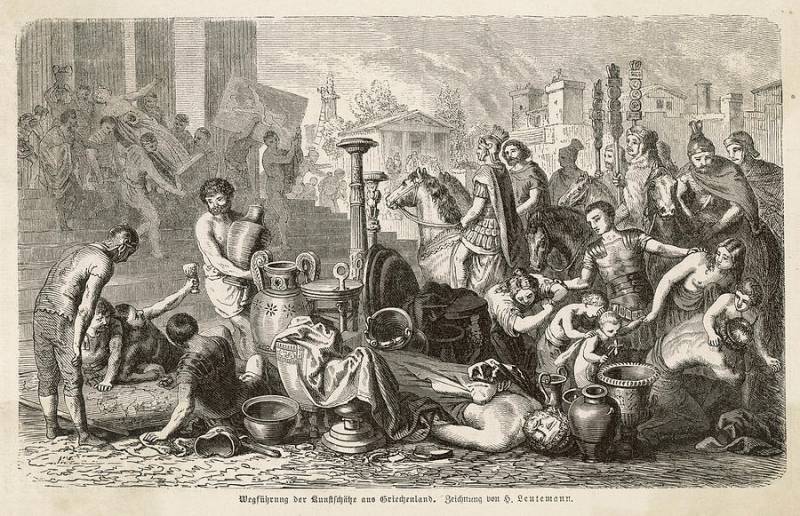
Marie Evans. Sack of Athens by Sulla's army
В previous article was told about the origin of Lucius Cornelius Sulla, the beginning of his military and political career. Today we will talk about two civil wars, the first in stories Rome, and the victory of Sulla in the war with the king of Pontus Mithridates VI Eupator.
First Civil War
After the end of the Allied War, Sulla returned to Rome and in October 89 BC. e. was elected consul for the following year. Another consul was his friend Quintus Pompey Rufus. And immediately a struggle broke out for the post of commander of the Roman army, which was supposed to go against the Pontic king Mithridates VI. This sovereign overthrew the Roman henchmen - the king of Cappadocia Ariobarzan and the ruler of Bithynia Nicomedes. In addition, he ordered the killing of Roman citizens who found themselves in his possessions, and called for reprisals against them from his neighbors.
Mithridates VI had the nickname Eupator (Noble) and, according to Justin, called the Roman kings "crowd of vagabonds”- after all, among his ancestors on the father's side were Cyrus and Darius, and on the mother's side - Alexander the Great and the Macedonian commander-diadoch Seleucus I Nicator. On the eve of the first war with Rome, Mithridates VI minted coins, where he was called the Great and Basileus (King of Kings). It is curious that in order to preserve the purity of the blood, this Pontic king married his own sister Laodike.
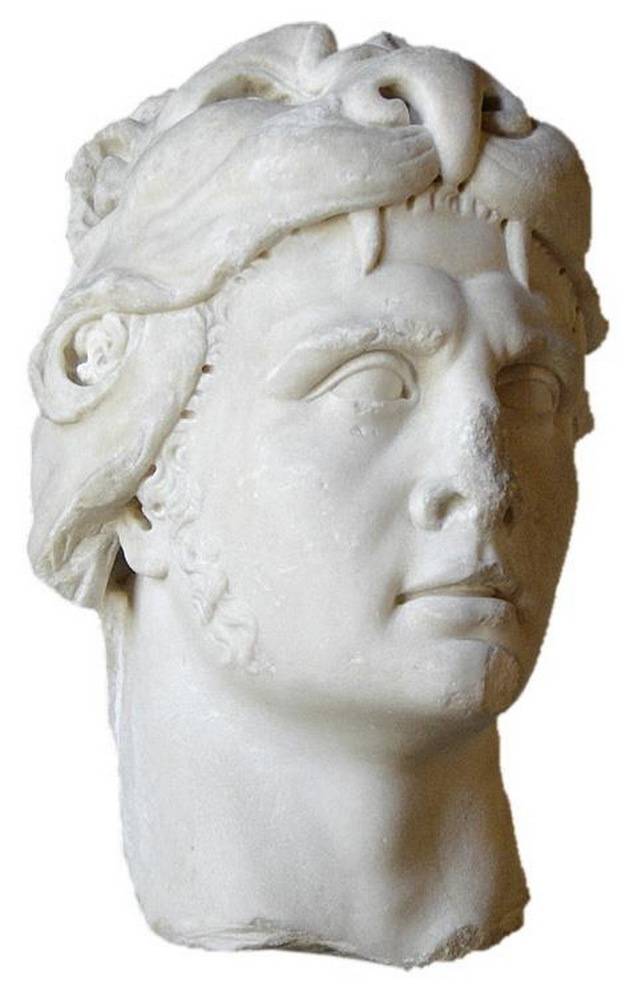
Mithridates VI Eupator, bust. Louvre. This king ruled for more than 50 years and, in addition to Sulla, also fought with Lucullus (who, among other trophies, brought cherry trees from Armenia to Rome) and Pompey
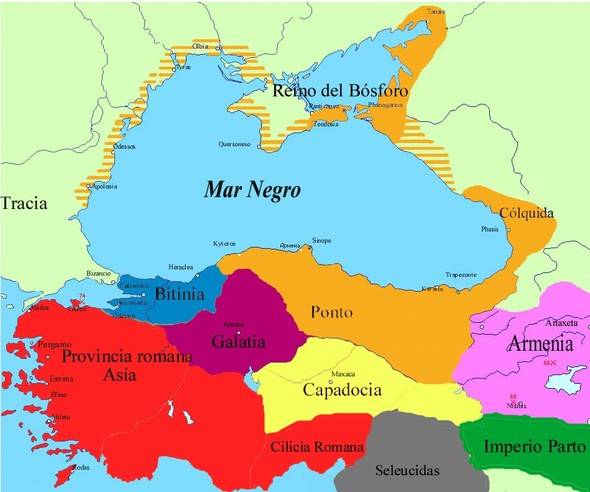
Pontus at the beginning of the XNUMXst century BC. e.
The allies of Pontus at that time were Ptolemaic Egypt, Seleucid Syria, Armenia, Athens, some Thracian tribes and even Cilician pirates. Nevertheless, in Rome it was believed that the war with Mithridates would not be particularly difficult, and the commander who led the army directed against him would not only become famous, but also get the opportunity to get rich. The troops were to be led by the consul Sulla, who received the province of Asia by lot. The sacrificial gifts of Numa Pompilius were sold to arm his army. However, Gaius Marius, who was supported by the popular party, the people's tribune Publius Sulpicius Ruf and the "new" citizens of the Italian cities, also made claims to the command. The popular won, but this victory was truly "Pyrrhic". Not wanting to hand over his army to Mary, Sulla turned his army against his native city for the first time in the history of Rome. In total, 6 legions turned out to be under his command, however, some soldiers and officers left their units, not wanting to take part in this unheard of campaign. The defense of Rome was tried to be organized by Marius and the popular tribune Sulpicius, who were in it. They even promised freedom to those slaves who wished to join the units they had formed. Meanwhile, four legions of Sulla blockaded the city, two others under the command of Sulla himself entered it through the Esquiline gate. It was immediately announced that the houses of the inhabitants who dared to resist would be burned, but street battles still began near the Esquiline Forum, in which regular units were expected to win. The Marians fled Rome, and Sulla managed to maintain control over his soldiers by forbidding them to rob the townspeople's houses. Initially, only 12 people were sentenced to exile, including Sulpicius, Marius and his son, who were later sentenced to death in absentia. Sulpicius was soon killed by a slave, whom Sulla ordered to be freed for a service rendered, and immediately executed for treason. The head of Sulpicius was nailed to the rostra, under which this tribune protruded. Marius and his son fled to Africa.
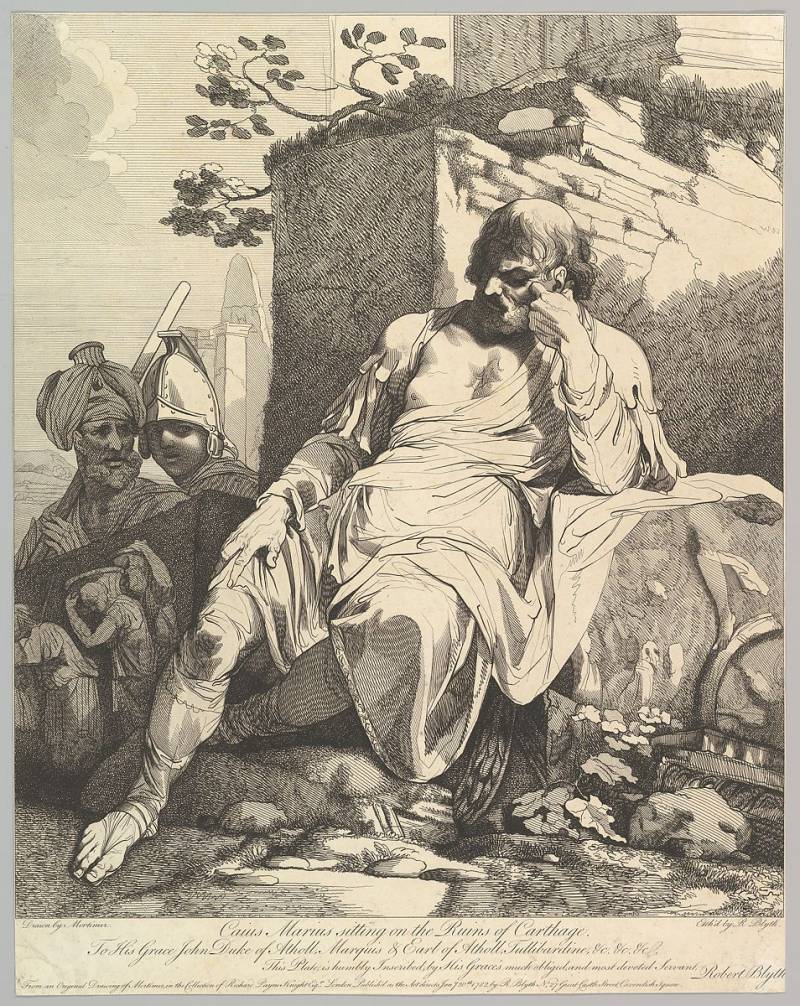
Exile Gaius Marius among the ruins of Carthage. Engraving by Robert Blythe, 1782
Meanwhile, in Rome, their supporters raised their heads, who began to demand the annulment of the sentence, and against Sulla the tribune, Mark Virgil even began the procedure for prosecution. Without waiting for the end of the trial, Sulla went to war with Mithridates.
First Mithridatic War
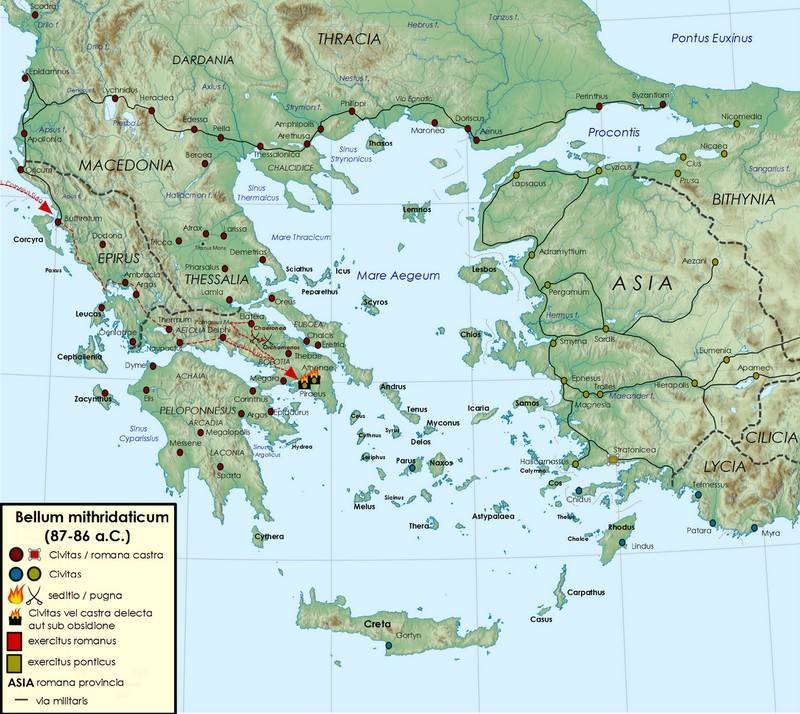
Showdown with political opponents delayed Sulla's speech for 18 months. During this time, the troops of Mithridates VI inflicted several defeats on the Romans and drove them out of Asia Minor and Greece. Finally, in 87 B.C. e. Sulla arrived in Epirus, from where he moved his troops to Attica. Having defeated the troops of the Pontic commander Archelaus here, he began the siege of Athens. To build siege engines for the assault on the Acropolis, the groves of Plato's Academy and Aristotle's Lyceum were cut down.
The city was taken by storm on March 1, 86 and heavily devastated. In addition, to replenish the military treasury, on the orders of Sulla, several Athenian temples were plundered, as well as the famous temple of Apollo at Delphi. Archelaus, who was still holding Piraeus, without waiting for help, sailed to Boeotia, where he joined up with the new Pontic army commanded by Taxilus. But these troops were defeated by Sulla in the battles of Chaeronea and Orchomenus. During the last of them, Sulla himself, with a banner in his hands, stopped the soldiers who were already ready to flee.
The position of Mithridates was rapidly deteriorating. The Galatians revolted in Asia Minor, and the Roman squadron of Lucius Licinius Lucullus, the one about whom Plutarch wrote:
Lucullus defeated the Pontic fleet in a naval battle off Tenedos. After Sulla transferred his army to Asia Minor, a frightened Mithridates offered peace, which was concluded at Darbdan in 85 BC. e. He agreed to a payment of 20 thousand talents, handed over warships and withdrew troops from the previously captured provinces. Another "trophy" of Sulla was the Egyptian prince, previously captured by the troops of Mithridates on the island of Kos. Later he was sent to Alexandria and ascended the throne under the name of Ptolemy XI. He had to marry his father's widow Berenice III, of whom he was a stepson. 19 days after the wedding, Ptolemy XI ordered the murder of his wife. Berenice was loved in Alexandria, at the news of her death, the townspeople rebelled and not only overthrew, but literally tore apart Sulla's henchman. We have already talked about this and many other things in the article. Tragic "Game of Thrones" in Ptolemaic Hellenistic Egypt.
Let us return to Sulla, who, after the victory over Mithridates VI, was proclaimed emperor by his soldiers - and outlawed in Rome. Now he had to once again lead his troops to Rome.
Revenge of the Party of the Roman Populares
And in Rome, at this time, the populars again took over, unleashing a campaign of terror against the optimates of Sulla. Consul Lucius Cornelius Cinna was expelled from Rome by Sulla's supporter Gnaeus Octavius. But soon he returned with Guy Marius, who brought with him an army from Africa, numbering up to 60 thousand people. During the five-day massacre, the consul Gnaeus Octavius, 50 patricians and hundreds of supporters of Sulla from among the "old citizens" were killed.
In 86 BC. e. Marius was elected consul (for the seventh time), but died a month later. For some time, Cinna single-handedly ruled Rome, it was at his insistence that Sulla was outlawed. Lucius Valerius Flaccus went to Greece at the head of two legions to replace Sulla as commander of the army, but he refused to recognize his authority. Two Roman armies met near the city of Melitea in Thessaly, but did not unite and did not fight, but dispersed in different directions. Sulla led his troops into Boeotia. The army of Valerius Flaccus went north through Macedonia. On the way, the legate Gaius Flavius Fimbrios defeated the troops of Mithridates VI himself in the battle of Miletopolis. Having reached Byzantium, this army crossed the Bosphorus and entered Chalcedon. Here Valerius Flaccus was killed during a mutiny raised by his own legate, Flavius Fimbrios, who later defeated the Pontics at Rindacus. However, his troops went over to the side of Sulla. He was on his knees, trying to stop the departing soldiers, and then, not having survived the shame, he committed suicide.
And the victorious Mithridates Sulla now had to again lead his army to Rome.
Second Civil War (83-82 BC)
By the time Sulla's army landed in Brundisium, Gaius Marius had already died. We can say that he was lucky: he did not see the defeat of his party, did not learn about the numerous executions of supporters and the suicide of his son. Lucius Cornelius Cinna and Gaius Marius the Younger (son of the commander and cousin of Gaius Julius Caesar), who were at the head of the populations, urgently recruited troops, but the forces were clearly not equal. The victorious army of Sulla easily reached Rome, and along the way it was joined by detachments gathered by noble optimates who had fled from the city. The young Gnaeus Pompey brought a whole legion to Sulla, which he recruited from his friends and clients. It was Sulla, by the way, who was the first to use the agnomen Magnus (“Great”) in relation to Pompey. Other prominent optimates who joined Sulla were Quintus Caecilius Metellus Pius and Marcus Licinius Crassus.
Lucius Cornelius Cinna was killed by rebellious soldiers. Gaius Marius the Younger was blocked in the besieged city of Prenesta.
Sulla was still trying to pretend that he was acting legally, and therefore he did not occupy Rome for a long time: the fact is that from a legal point of view, entering the city, he lost the powers of the proconsul and had to seek for himself some new position through elections .
The decisive battle of this civil war took place at the Colline Gates of Rome, where the striking force of the Marians was a detachment of Samnites who hated Rome. Their leader, Pontius Telezinus, one of the Italic commanders during the Allied War, said:
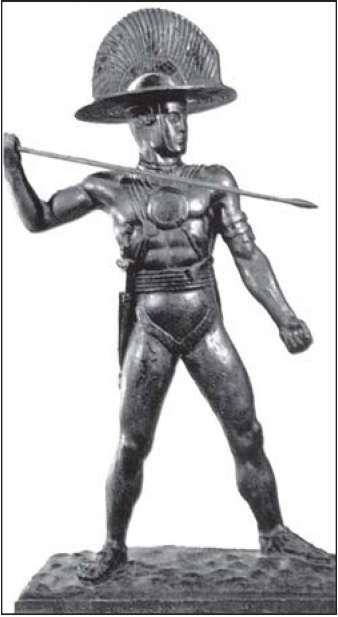
Antique figurine of a Samnite warrior
And this modern statue of a Samnite warrior can be seen in the Italian commune of Pietrabbondante. Sometimes it is mistakenly called a monument to Pontius Telesinus:
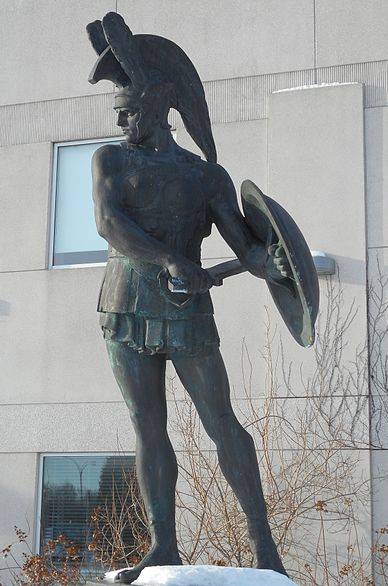
When the allied troops of the Populares and the Samnites approached Rome, Sulla's army successfully fought in the north - against Gnaeus Papirius Carbon. Having learned about the approach of the enemy army, he sent cavalry units to Rome and moved towards the city himself. In this last battle, the Samnites fought especially desperately, and Sulla almost suffered a defeat - the only one in his life. The left wing of the Romans, led by Sulla, was pressed against the walls, but the situation was saved by Mark Crassus, who commanded the right flank of the army. His units managed to overturn the enemy soldiers standing in front of him. Encouraged by the news of the success of the troops of Crassus, the soldiers of the left wing launched a counterattack. The battle, which continued into the night, ended with the victory of the Roman army.
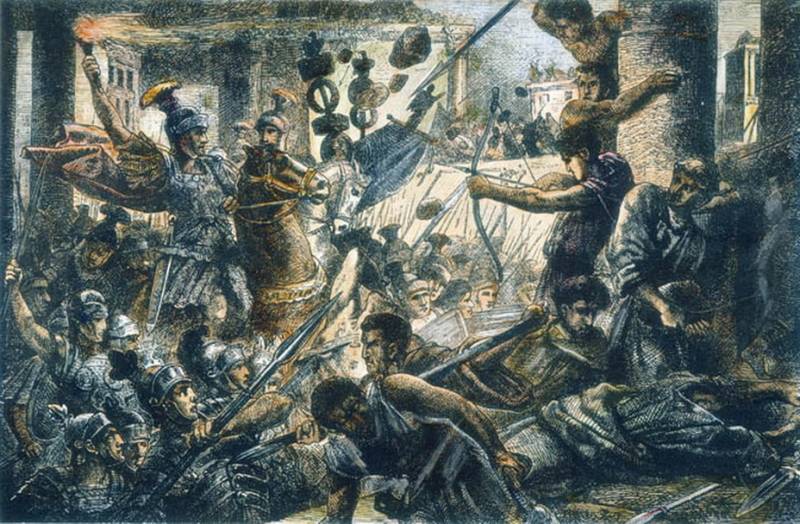
Battle of the Colline Gate, 82 BC e. Wood engraving, XNUMXth century
It was the Samnites who, after the victory, Sulla ordered to kill - from four to six thousand people, moreover, having shown treachery, and he used the massacre of them as an act of intimidation of senators:
The Samnites were a very powerful and numerous tribe that had long occupied lands in the territory of Central Italy.
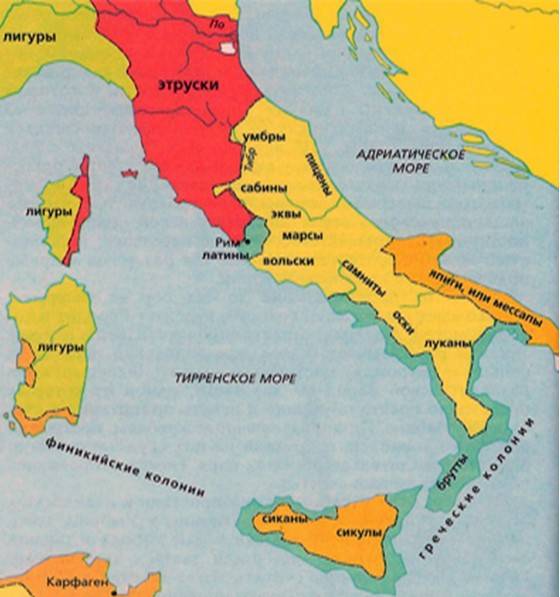
Settlement map of the Italic tribes
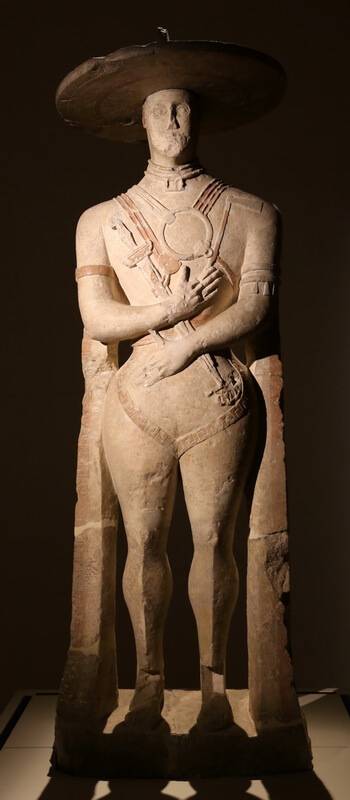
"Warrior from Capestrano", statue 2,09 m high, second half of the XNUMXth century BC. e. National Museum of Antiquity of Abruzzo
But, according to Strabo, after the repression of Sulla
However, some of the Samnites (of those who sided with Sulla in time) integrated into Roman society. It is claimed that Gaius Cassius Longinus (comrade-in-arms of Brutus, one of the commanders of the Republican army that fought in the Battle of Philippi against the troops of Octavian and Mark Antony) and the fifth prefect of the Roman province of Judea Pontius Pilate were of Samnite origin.
The Popular Party was beheaded. Prominent opponents of Sulla died or fled from Italy.
On the eve of the fall of Prenesta, the brother of the deceased Pontius Telesinus and Gaius Marius the Younger committed suicide by entering into a duel. Marius, who was seriously wounded, became the winner in it, who was then finished off (at his request) by one of the slaves. Coincidence or not, but it was after the death of Marius the Younger that Sulla began to call himself Happy.
Gnaeus Papirius Carbon, defeated at the Battle of Fidencia by Lucullus, left an army of 30 and fled to Africa, but was later captured by Pompey's soldiers on the island of Cossura and executed.
Guy Norbanus, having been defeated in a battle with Quintus Caecilius Metellus, tried to take refuge on the island of Rhodes. Upon learning that they wanted to extradite him to Sulla, he stabbed himself with a sword.
The Marian Quintus Sertorius entrenched himself in Spain, where Pompey and Metellus Pius fought with him for a long time and not very successfully. He was treacherously killed in 73 BC. e.
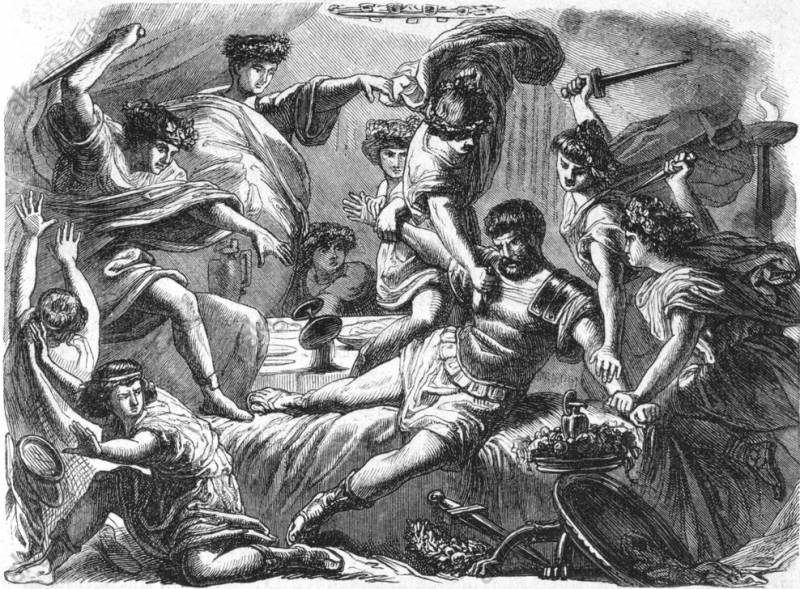
W. Wagner. Assassination of Quintus Sertorius
We will talk about Sulla's repressions, his reforms, voluntary relinquishment of power, illness and death in the next article.
Information